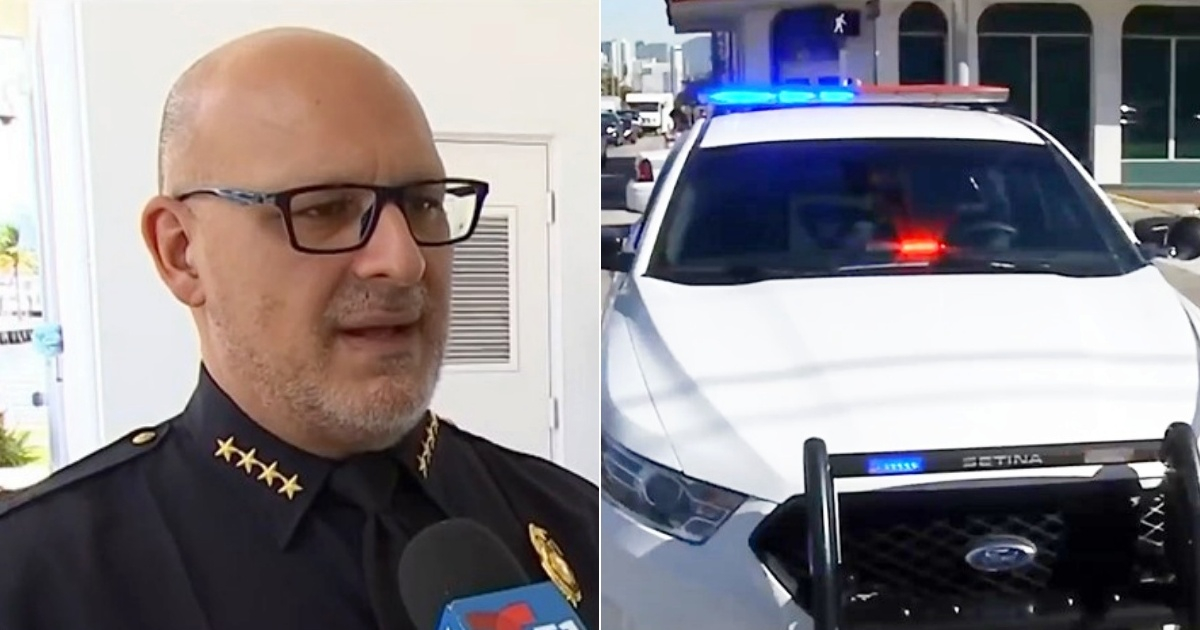Miami Police Chief Manny Morales has sought to downplay the controversy surrounding the recently approved collaboration agreement between the Miami Police Department and ICE (Immigration and Customs Enforcement), emphasizing that the police department's role will be minimal. Morales clarified that only three out of the department's 1,400 officers will be trained to participate in this program.
"The officers selected to join this group will have the same authority as any U.S. immigration officer while working under federal supervision. However, during their regular duties, they will function as typical police officers," Morales assured in a statement to the local press.
Commission's Vote and Public Concerns
The agreement was ratified by the Miami City Commission with a 3-2 vote in favor, backed by commissioners Joe Carollo, Miguel Gabela, and Rafael Rosado, while Damián Pardo and Christine King opposed it. The decision followed extensive public testimony from citizens and organizations worried about the impact of such collaboration in a city where nearly 60% of residents are foreign-born and 70% are of Hispanic descent.
Morales' Assurance: Limited Role and Minimal Impact
According to Morales, the selected officers will undergo a 40-hour training to join an operational team with ICE. He emphasized that these officers would continue their regular police duties when not under federal supervision. Morales' clarification aimed to alleviate fears from activists and community members concerned about increased distrust in the police and the risk of indiscriminate deportations.
Supporters: Legal Compliance and Financial Preservation
Proponents of the agreement, such as Commissioner Miguel Ángel Gabela, argue that the collaboration is crucial to comply with Florida state laws and safeguard $20 to $30 million in essential funding for local development. "We signed this to stay within the law in Florida, ensuring we don't lose critical funds that I have worked hard to secure for road projects in my district," Gabela stated.
Carollo and Rosado echoed their support by stressing the financial necessity, pointing out that the city cannot afford to forfeit state grants by failing to align with current laws.
Opposition: Social Impact and Deportation Fears
Conversely, dissenting commissioners highlighted the social and moral consequences of the agreement. Immigrant advocacy groups contend that the community's cohesion is being compromised for financial gain, potentially heightening fear of the police among already vulnerable groups.
Paul Namphy, an activist with Family Action Network Movement, expressed concern over the human ramifications: "Florida thrives on the diversity and resilience of immigrant communities from Haiti, Venezuela, Cuba, Nicaragua, Colombia, and beyond," Namphy remarked. "The moral scars of dividing families and sending loved ones back to danger in their home countries are profound. These deportation efforts threaten to dismantle Florida's economy," he warned.
A City Divided
The controversy exposes a deep divide in Miami between adhering to state directives and securing economic resources versus protecting immigrant communities, which have been integral to the city’s social and economic fabric. Although Morales attempted to reassure the public by highlighting the limited and technical nature of police involvement, criticism persists. For many, any collaboration with ICE is seen as a betrayal of the values of a city built by immigrants.
Despite its significant immigrant population, several South Florida cities have entered into similar cooperation agreements with ICE under the 287(g) program. In Miami-Dade County, cities such as Miami, Homestead, Hialeah, Doral, Sweetwater, Coral Gables, West Miami, Miami Springs, and Sunny Isles Beach have joined. In Broward County, Davie and Pompano Beach have participated, while in the Keys, part of Monroe County, Key West and Key Colony Beach have signed on.
Frequently Asked Questions About Miami's ICE Agreement
What is the role of Miami Police in the ICE agreement?
Miami Police will have a minimal role, with only three officers trained to participate in the program alongside ICE, maintaining their regular duties when not under federal supervision.
Why did some commissioners oppose the agreement?
Commissioners opposing the agreement cited social and moral concerns, fearing it would foster distrust in the police and increase the risk of deportations among immigrant communities.
What economic arguments were made in favor of the ICE collaboration?
Proponents argued that the agreement is necessary to comply with state laws and protect $20 to $30 million in funding crucial for local development projects.
